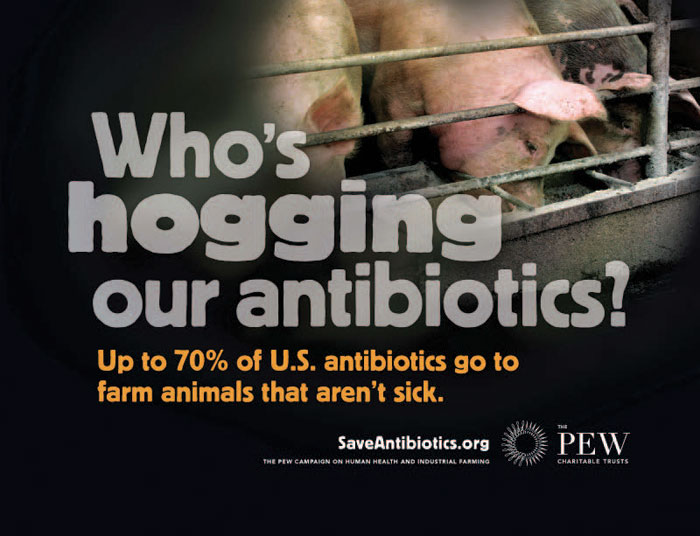New Analysis Says FDA Farm Antibiotic Reduction Won’t Work | WIRED
A just-published analysis says pharma companies are evading the FDA’s hoped-for curbs on antibiotic use in meat production.
A brand-new analysis of the Food and Drug Administration’s plans to restrict agricultural overuse of antibiotics brings some needed clarity to the subject — and calls into question how effective those plans will be.
The analysis, published by the Pew Charitable Trusts, examines whether the FDA’s request to veterinary pharma companies — to observe voluntary curbs on the antibiotics they sell — is actually going to make much difference in quantities of antibiotics that are used. And concludes: Maybe not.
The background here: For decades, scientists have been demonstrating that antibiotics used in raising meat animals pose a health threat to humans, because the antibiotics cause bacteria in the animals’ systems to become resistant. When the animals are slaughtered and turned into meat, the resistant bacteria remains on the meat; the bacteria may be consumed directly, or may contaminate kitchens — or may contribute resistance DNA into the environment that then is sucked up by other bacteria.
The concern is acute because so many of the antibiotics that are used in meat production are functionally identical to the same drugs that would be used to treat bacterial infections in human medicine. That means that, because of agricultural use, human-use drugs are ineffective when they are needed. What adds to the problem is that agriculture uses so many antibiotics: three to four times what is used in humans in the US each year.

